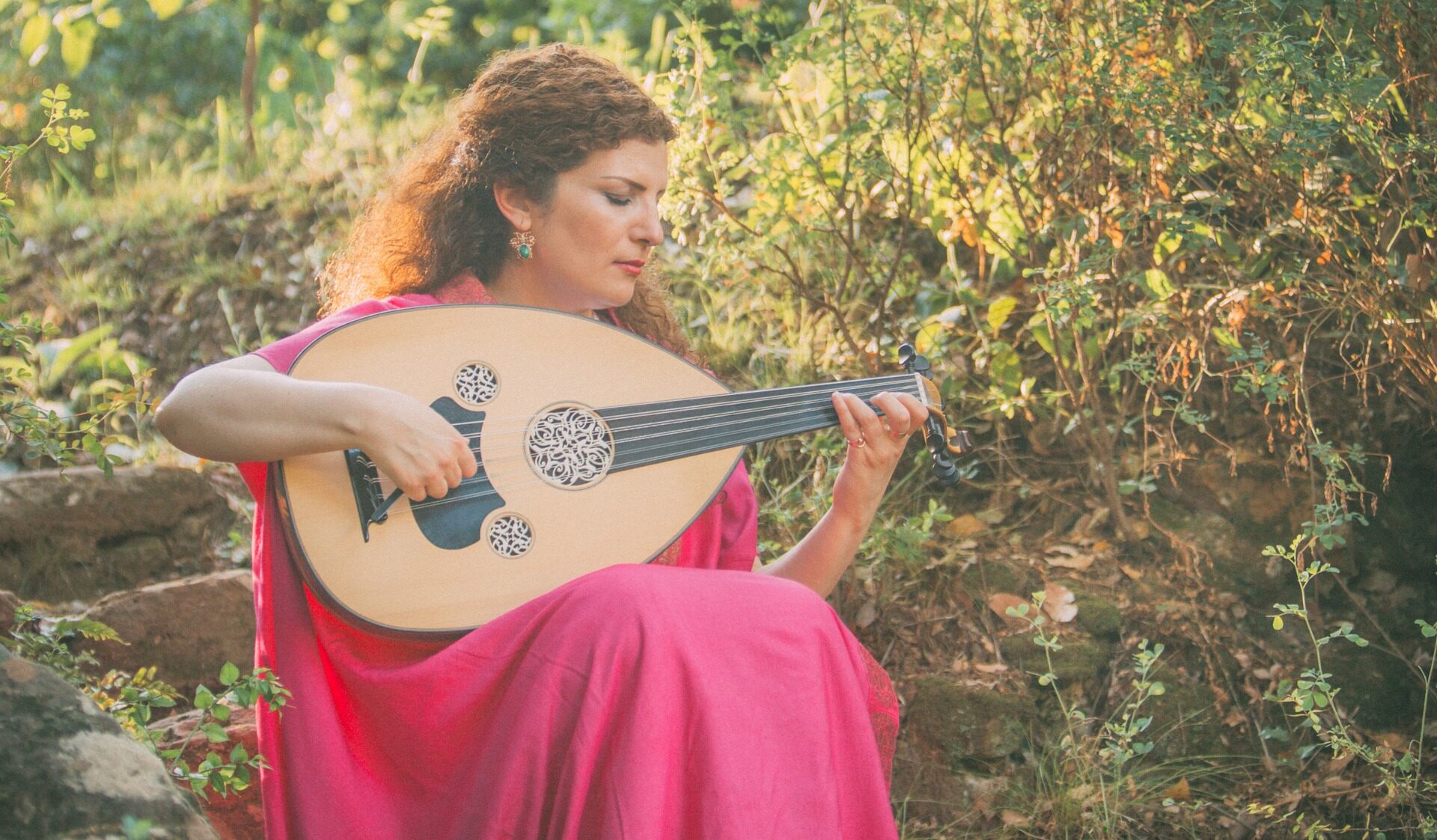
Waed Bouhassoun & Orpheus XXI
La Voix de la nature
Musical Performance Arab and Persian Music 0In addition to her solo career and her work as a musicologist, Syrian oud player and singer Waed Bouhassoun is also the artistic director of Orpheus XXI. Founded by Jordi Savall in reaction to the new waves of migration in the 2010s, the ensemble consists of a variable group of musicians from many different traditions who were forced by war and displacement to leave their homelands and now live and work in Europe. Influenced by the pandemic and its effects on our lives, its current program La Voix de la nature reflects on the relationship between human beings, nature, and music.
The audio recording of the concert will be released at a later date available to members of Pierre Boulez Saal Online only. Learn more about our new online membership.
L’Armada turca era comandada
(traditionell sephardisch, aus Smyrna)
Dialogue des voix de la montagne
(vokale Duo-Improvisation)
Bi man maro
Melodie von Shahab Azinmehr
Gedicht von Rumi (1207–1273)
Parviz Meshkatian (1955–2009)
Khazan (persisch)
Dede Efendi (1778–1846)
Ferâhfezâ Sarki (osmanisch)
Safar karde (traditionelles persisches Lied)
Alfons X. (1221–1284)
Saltarello
Intermission
Menk kadj tohmi (armenisch)
Passion
Melodie von Waed Bouhassoun
Gedicht von Ibn Arabi (1165–1240)
Segâh nefes (osmanisch)
Abolhassan Saba (1902–1957)
Tamarine Dashti (persisch)
Tanburi Cemil Bey (1873–1916)
Çeçen kızı (türkischer instrumentaler Tanz)
Traditionelles Lied
Kevokê (traditioneller syrischer Tanz)
Traditionelles iranisches Tanzlied
The Voice of Nature
This project was developed during a residency at Fontfroide Abbey in the south of France. It is a place steeped in nature, blending harmoniously with the trees and mountains. The program is a tribute to its environment and was inspired by the atmosphere this place exudes.
Music has an intrinsic link with nature. Through voice and musical instruments, humans seek to imitate its primeval sounds. Musicians and instruments for this program were chosen based on this relationship with nature. The instruments are made of wood, skins, and gut, and their respective sounds conjure up the power of the elements. The continuous blowing of the ney evokes the wind and facilitates meditation. The playing of the qanun is reminiscent of tumbling water in a waterfall. Percussion instruments recall the sound of branches stirring in the wind, of grass crushed by footsteps, or of a beating heart. Composition is fed by the echo of the mountains; improvisation by the back-and-forth motion of the waves. Singers express through their voices the power of the mountains, of the deserts, of the landscapes that gave birth to their repertoires. Thanks to the poetry and sounds of each language, they reproduce in their own way the songs of birds and the cries of animals.
The months we have lived through during the pandemic have had an impact on nature and are the result of our relationship with it. Humans have not taken good care of their environment and have over-exploited it, pushing forests and animals ever further away. But with widespread lockdown, birds and animals took advantage of the absence of humans to re-emerge in the places they had previously abandoned. Pollution decreased. Silence returned. Silence is an essential and structuring element of music. It allows the listener to be captivated by emptiness. And in our lives, we sometimes need silence and rest.
The aim of this project is to go further in exploring the relationship between music and nature, to return to the essence of music, and to show our gratitude to nature. Human beings created music to better integrate with their environment. This program aims to propose a way to recreate this link and to reintegrate, to reconnect with nature and with each other. This means following the same organic process by which the Orpheus XXI ensemble was formed and created its own sounds: bringing together musicians from different backgrounds, creating a dialogue between different cultures, and enabling migrant and refugee musicians in Europe to integrate into the societies in which they live.
—Waed Bouhassoun
Notes originally published in the Pierre Boulez Saal program book for the performance La Voix de la nature on November 19, 2022.